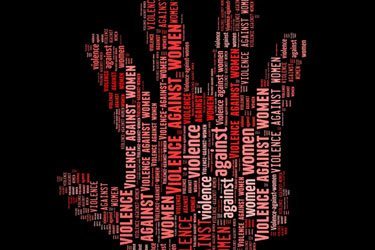U.S. Must Stand Strong on International Agreement to Address Gender Violence
It’s time to leverage the VAWA victory and turn our attention to the needs of women and girls around the world.

One in three women worldwide will be physically, sexually, or otherwise abused in her lifetime. In some countries the number is as high as 70 percent.
This week and last, representatives of nations around the world have gathered to address the global epidemic of gender-based violence at the United Nations Commission on the Status of Women (CSW), an annual meeting to assess progress on advancing women’s rights. Having passed the Violence Against Women Act (VAWA) in Congress, despite attempts to block it by extreme conservatives, the United States has demonstrated its commitment to ending gender-based violence at home and can now support the world’s efforts to do the same.
This year alone, headlines from cities all over the globe, from New Delhi to Steubenville, have served as a grim reminder that despite laws, violence against women stubbornly persists. However, in some cases these stories have started positive debates and helped lead to the passage of better laws.
During the 2012 elections in the United States, we listened in horror as conservative candidates made one atrocious statement after another, revealing a complete lack of awareness that U.S. women suffer nearly five million partner-related physical assaults or rapes each year. Some small satisfaction can be found in the fact that these statements cost those candidates their seats. But the harsh reality remains: Too many mothers, sisters, daughters, and friends remain at risk of physical threat.
That’s why the hard-won battle to pass VAWA here in the United States was such a big victory. Signed into law last week, this legislation authorizes programs and policies that protect key populations, including same-sex partners, immigrant women, and Native-American women (allowing them to seek justice when their abusers are not Native-American). To exclude these people would further stigmatize already vulnerable populations when they most need care. Instead, the law will ensure these individuals can get the counseling, shelter, and other services they need to escape violent and abusive situations.
VAWA was first passed in 1994 and has been reauthorized twice since, always with bipartisan support. This latest VAWA reauthorization should not have been controversial. The bill has expanded critical protections with each iteration, reflecting a growing national recognition of the particular needs of marginalized populations.
Now it’s time to leverage this victory and momentum for women’s rights and turn our attention to women and girls beyond our borders.
At this year’s CSW, United States Ambassador to the UN Susan Rice said, “Violence against women weakens our communities, stunts our economies, and erodes our common values.”
Advocates for women’s rights must urge the global community to put forth an outcome document that expands protections against violence for women everywhere and protects their reproductive rights, without any caveats or conditions.
As health-care providers, Planned Parenthood health centers see firsthand the damage violence inflicts on women’s bodies and lives—and witness the pervasive fact that marginalized women remain at greatest risk of violence with the fewest resources to combat it.
We know that addressing and preventing violence against women requires working with women’s health providers. Studies have shown that women’s health providers are a critical intervention for women in abusive relationships. In fact, women in family planning centers who received both assessment and counseling on harm reduction strategies were 60 percent more likely to end a relationship because it felt unhealthy or unsafe.
This week, as negotiations come to a close, the U.S. delegation must continue to express strong support for women’s sexual and reproductive health and rights and urge other nations to do the same. Opponents of women’s health attend these meetings in full force to try to keep reproductive rights out of the discussion. But we can’t have a real conversation about ending sexual violence without making sure protections apply to all women and young people and talking about victims’ access to comprehensive health care
A strong resolution must include a commitment to expand access to sexual and reproductive health services, it must recognize rights, it must include marginalized women, and it must support future generations by pushing for comprehensive sex education that addresses harmful gender norms.
As President Obama said upon signing VAWA last week, “All women deserve the right to live free from fear.” This is true for all women, no matter who they are or where they live.
